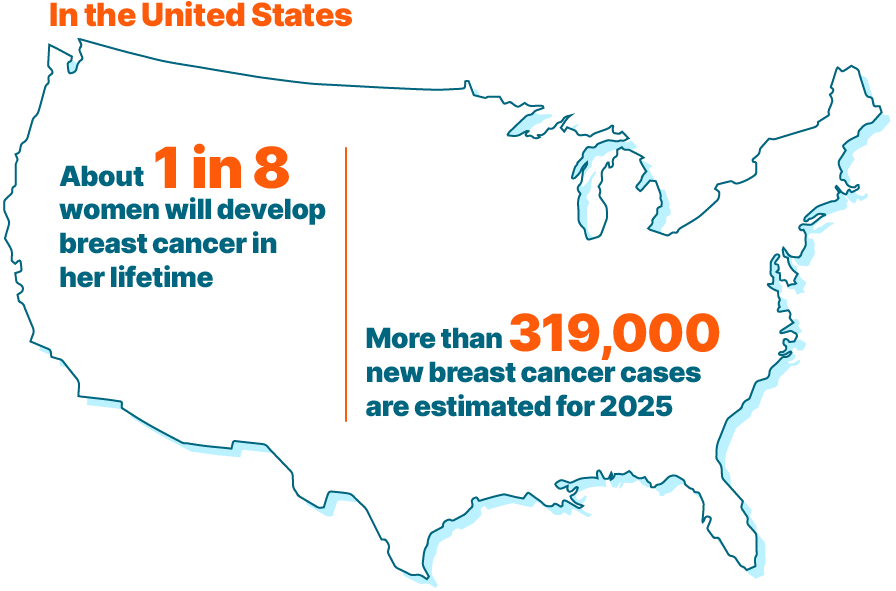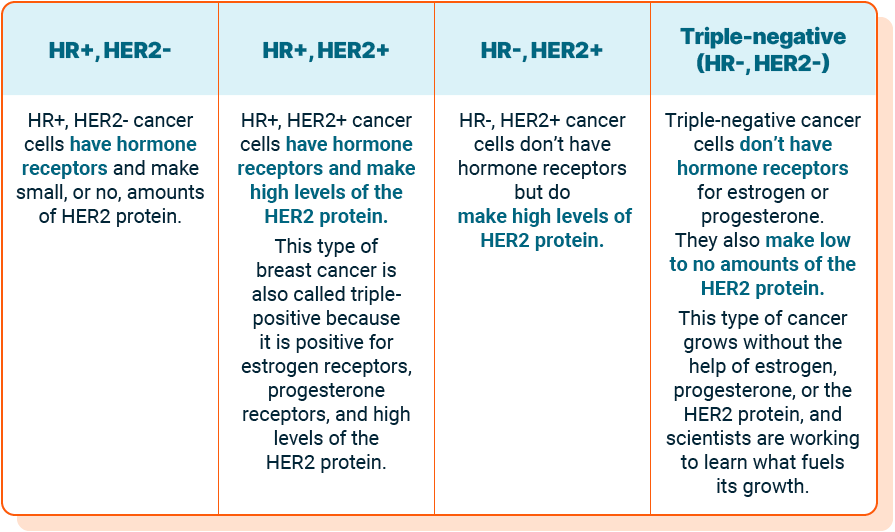Patient Support Line 1-866-433-8000, Monday - Friday: 8:00 AM to 8:00 PM ET

What Is Early Breast Cancer?
.
Understanding early breast cancer
If you've recently been diagnosed with early breast cancer (eBC), you may have a lot of questions that are in need of answers. The content in this section is meant to help you learn more about eBC, and give you tips on how to talk to your doctor about it. If you have eBC, that means that your cancer is found only in the breast or nearby lymph nodes. It has not spread to other parts of the body.
Early breast cancer staging
The stage of a cancer describes how much cancer is in the body. It helps determine how serious the cancer is and how best to treat it.
eBC can be stages 0, 1, 2, or 3.
Stage 0
The cancer is in the same part of the breast as it started, sometimes called noninvasive breast cancer
Stage 1
The tumor is small and either has not spread or may have spread in small amounts to lymph nodes close to the breast
Stage 2
The tumor is a little larger and/or has spread to more lymph nodes than stage 1 cancer
Stage 3
The tumor may be larger, may have started growing into nearby tissue, or may have spread to many nearby lymph nodes. Stage 3 is also called locally advanced breast cancer
Subtypes of eBC
A subtype is a way of grouping cancer by what fuels its growth. Breast cancer subtypes are made up of 2 different parts: hormone receptor (HR) status and human epidermal growth factor receptor 2 (HER2) status.
Breast cancer subtypes may determine how your cancer responds to different treatments. Knowing your subtype helps you and your doctor determine appropriate treatment options for you.
4 subtypes of breast cancer
HR+, HER2- breast cancer is the most common subtype
Talking to your doctor about eBC
If you have eBC, 2 key treatment goals you may discuss with your doctor are:
When you're first diagnosed, the focus is on removing or killing cancer cells. You may undergo surgery, radiation, and/or chemotherapy to accomplish this goal. If these treatments are successful, the focus will now be on preventing cancer from coming back. Learn about a treatment that may help lower the risk of cancer coming back. | |
Make sure you discuss any goals you have for treatment with your doctor. You and your doctor can work together to create a treatment plan that is best for you. | |
You may want to keep a list of questions to bring to your next appointment, such as, "How can I find out if my type of cancer is likely to come back after initial treatment?" | |
Thinking about and discussing treatment can be a lot to manage. The treatment planner in your Welcome Kit was created with this in mind. You can use the planner to stay organized and write down questions to bring to your next doctor appointment. The more prepared you are, the more productive the conversation with your doctor may be. |
What is eBC glossary
Learn more about key terms used on this page by tapping or clicking on the words below.



